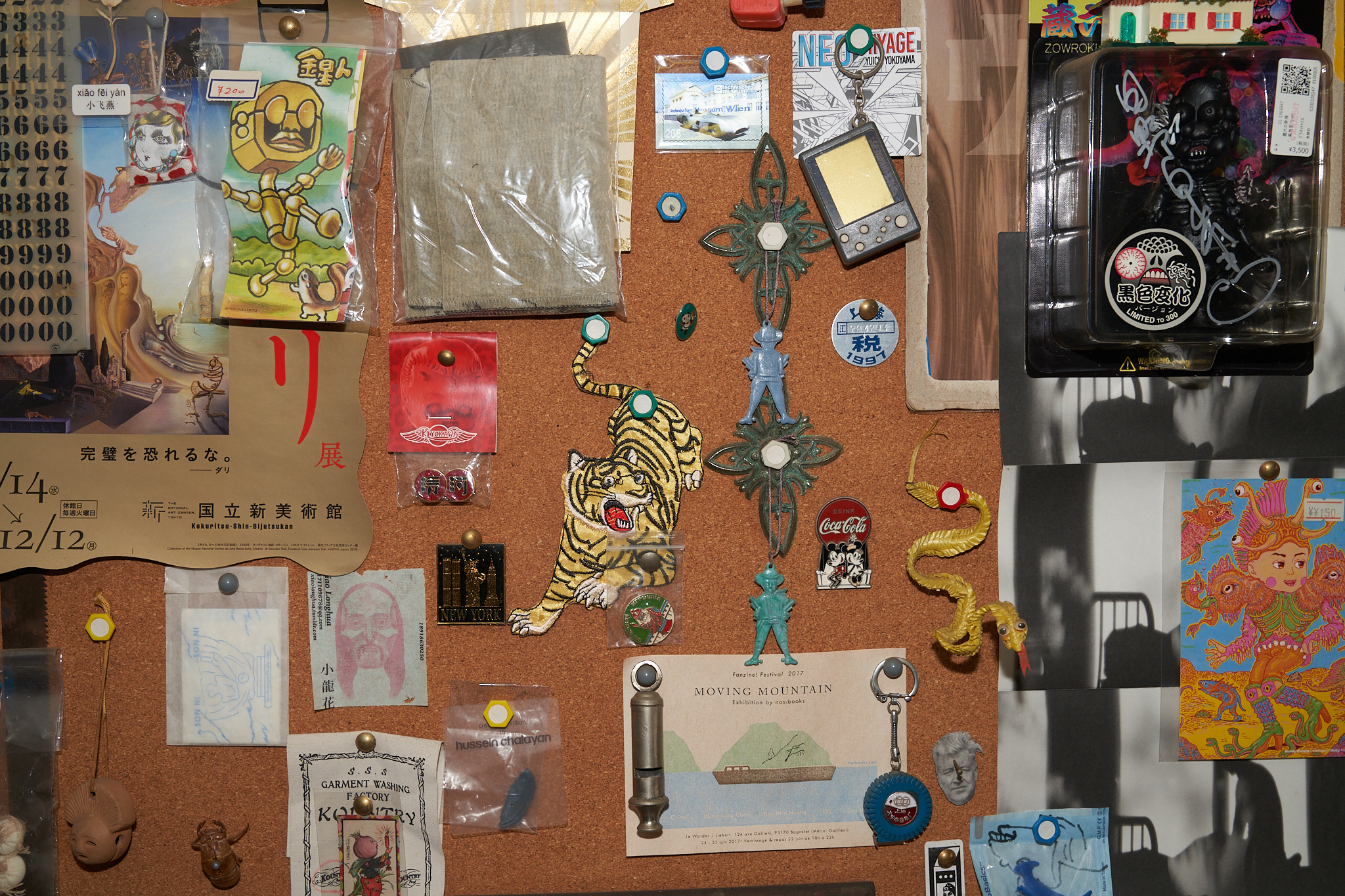QIU ZHIJIE: SATIRE
| January 29, 2014 | Post In LEAP 24

Installation, performance, screen,
dimensions variable
PHOTO: Meng Wei
Courtesy of Galleria Continua, San
Gimignano / Beijing / Le Moulin
Critics of Qiu Zhijie’s new solo exhibition have most frequently referred to it as “burdensome” and “cluttered.” How is it that an artist who has been practicing for over 20 years, so known for his cerebral approach, can fall victim to overindulgence? If we attempt to understand the subjective impressions that guide Qiu’s value judgements, perhaps the problem can be found.
An encounter with the reading material provided or a simple look around the gallery reveal the presence of familiar theoretical tropes. There is comedy, silliness, oppression, and theories of madness (from Foucault’s Madness and Civilization). There is a band wearing masks of various political tyrants (enemies of the West), performing absurd renditions of the national anthems of various Western nations. Meanwhile, visitors are asked to themselves don ridiculous masks…. in all, the scenario could be a fitting illustration of Mikhail Bakhtin’s theory of the carnivalesque.
Qiu Zhijie’s previous explanations of his work reveal an obsession with classical Chinese phrases— that time is boundless, space is infinite, and other particularly Chinese sensitivities to the vicissitudinous, ever-shifting nature of reality—which have even become a central predilection of the artist. Qiu himself has, in various interviews, acknowledged the importance of said ideas to his work.
And despite the fact this exhibition quotes the latter half of Aristotle’s very precise and profound Poetics, what we actually perceive is much less so: the all-encompassing map of symbols and images that is Comical Politics; 50 electronic Elmo dolls laughing at the world classics of wisdom in Cannot Hold It Anymore; various political leaders’ speeches cut with the laughter of ordinary people in Out Of Control; and the exquisite, lifelike sculptures of mythological beasts, looming as if they hold the eternal wisdom of humankind, of The Plan of 100 Unicorns.….the artist’s selection of readymades must surely be related to his assurance that he can effortlessly invoke the boundlessness of time, the infinity of space…
To go a step further, let us situate and analyze Qiu Zhijie’s interest in ancient Greek drama within the framework of his aforementioned value system. Comedy and tragedy often come as two sides of the same coin: the story of Sisyphus for example, is tragic, solemn and noble, but can also be seen as a comedy, his actions an incisive mockery of both himself and his surrounding reality. The great contradiction that is the fate of Sisyphus corresponds to a line of classical Chinese poetry: “I think of heaven and earth, without limit or end / And alone, my tears start to fall.” Indeed, such lofty portrayals of the absurd leave us stunned and fragile, and in awe of those who give themselves to the struggle. For those intellectuals who still have memory of Chinese culture, they are enough to induce tears.
Yet even if these works are steeped in grandiose language, this doesn’t mean that they are able to inspire correspondingly intense emotional responses. The expressive persistence and might of such language might, instead, weaken the artist’s grip on perceptions of his work. When concrete objects, actions, and sounds are reduced to expressive tools, they are masked by the broad expressive space their mediums inhabit.
Furthermore, the perceptive experience of the Chinese language is incredibly difficult to share with non-speakers—at best they can be offered a graphic symbol and a superficial explanation of a character’s meaning. In this age of information overload, with the international contemporary art world drunk with ideology, it is easy for an artist to employ diverse visual resources and turn words into conceptual imagery (the greater the disparity between interpretations of symbols, the more they are able to exploit the representation of space-time and potency of their absurdity, if collaged together). If corresponding conceptual explanations are found, then they can accordingly enter the cultural production system of capitalism, and the spectacle of the work can be taken a step further.
The ways in which an artist employs diverse imagery and symbolism within a global context certainly reflects his individual standpoint, and how it may connect with other people and the world at large. If an artist takes the once-intensely criticized, post-colonialist stance towards classical Western culture and Chinese folk culture— one originally traceable back to the classical Chinese worldview of tianxia (“under heaven”) but re-actualized for the present—he is doing little more than upholding an already existing dominance, that of the spectacle.

